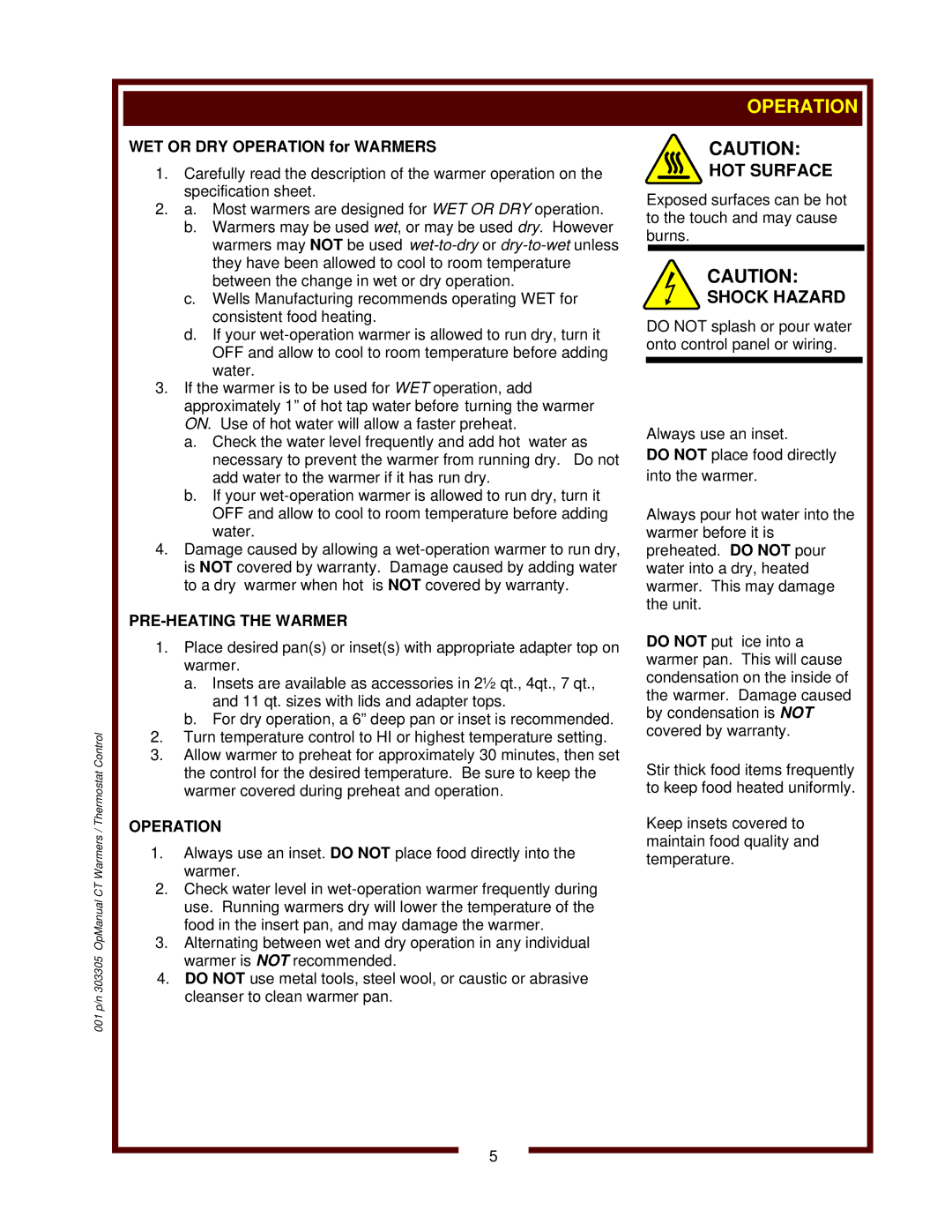SMPT, TMPT, SW-10T specifications
The Wells SW-10T, TMPT, and SMPT represent a range of innovative and efficient foodservice equipment designed for commercial kitchen environments. These models are particularly renowned for their versatility and user-friendly features, making them popular choices among restaurant and foodservice operators.The Wells SW-10T is a countertop food warmer that boasts an impressive capacity with a sleek stainless steel construction. Its design not only enhances durability but also provides an aesthetic appeal that fits seamlessly into any kitchen design. A standout feature of the SW-10T is its adjustable temperature control, allowing operators to maintain optimal serving temperatures, ensuring that meals are always served hot and appetizing. Additionally, it features dual heaters that provide consistent heat and minimize cold spots, which is crucial for safety in foodservice operations.
The TMPT (Turbo Melt Pro) model takes warming technologies a step further. This unit is equipped with a high-performance heat system that delivers rapid heating, significantly reducing wait times for food preparation. The TMPT is particularly useful for melting cheese or warming other toppings, featuring an adjustable thermostat for precise temperature control. Its compact design allows for easy placement on countertops, enhancing convenience in busy kitchen settings.
The SMPT (Smart Melt Pro) shares similar capabilities but integrates advanced smart technology. This model features programmable settings and digital temperature readouts, providing operators with greater control over the melting process. The SMPT is designed with energy efficiency in mind, utilizing insulation materials that minimize heat loss and reduce energy consumption. It also incorporates safety features such as automatic shut-off functions, ensuring peace of mind for operators.
All three models prioritize ease of cleaning and maintenance, with removable components and smooth surfaces that resist food buildup. They are specifically designed to handle the rigorous demands of commercial kitchens while ensuring user safety and operational efficiency. These Wells models also provide versatility for various culinary applications, from holding sauces and gravies to warming bread and desserts.
In conclusion, the Wells SW-10T, TMPT, and SMPT models exemplify the fusion of functionality and innovation in foodservice equipment. Their advanced heating technologies, user-friendly designs, and energy-efficient operation make them essential tools for professionals seeking to enhance their kitchen capabilities and deliver quality food consistently. Whether for melting cheese or keeping dishes warm, these units prove invaluable in any fast-paced culinary environment.

